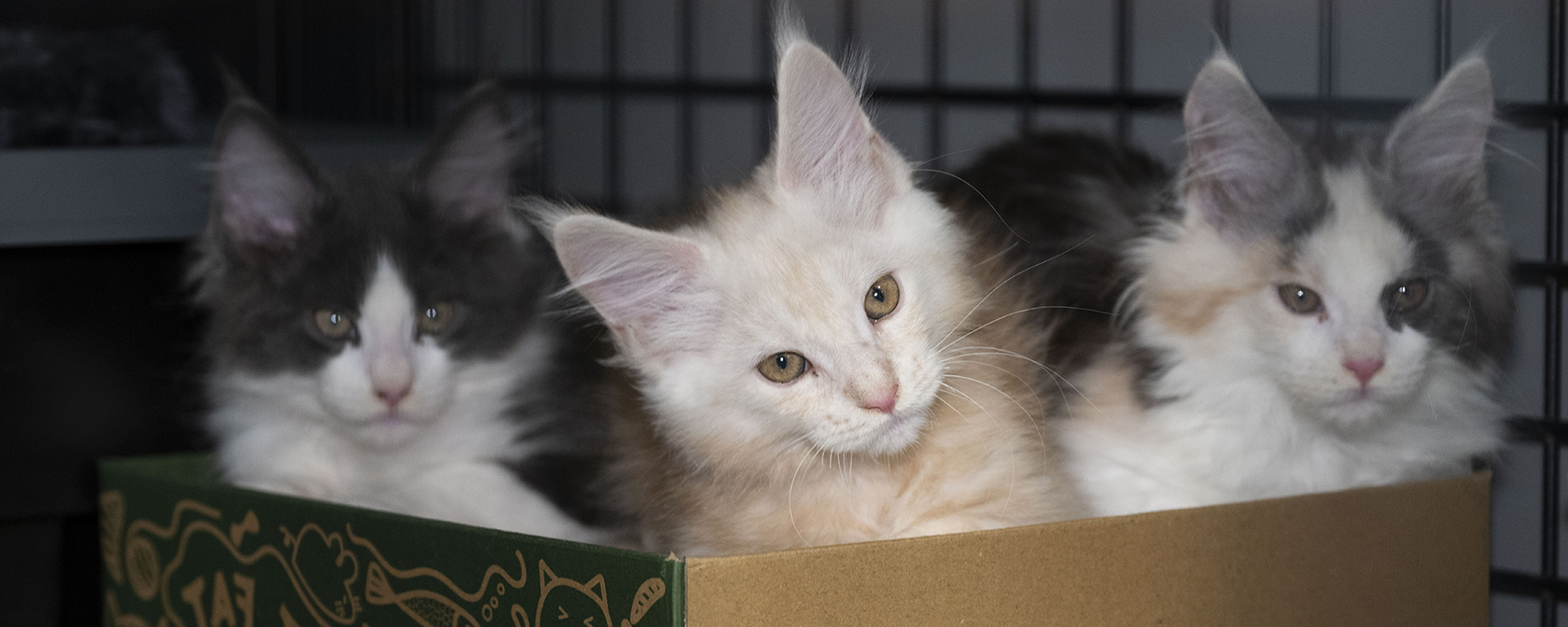Lawmakers at the state and federal levels can change the lives of animals for better or worse – and we have the power to decide who fills those elected seats of power. Humane World Action Fund is releasing its first-ever Arizona Humane Scorecard to help animal advocates evaluate their current representatives’ track record on animal protection.
There are many wins for Arizona’s animals reflected in the scorecard. Lawmakers passed bills that will strengthen the state’s animal cruelty laws, raise the most serious animal cruelty offenses to felony status, and clarify the use of assistance animals in housing. State legislators and Governor Hobbs also united against anti-animal measures that would have weakened enforcement of cruelty laws, reduced the independence of the Arizona Game and Fish Commission, and preserved cruel confinement practices used on egg-laying hens. These legislative victories are possible because Arizonans elected pro-animal candidates across party lines to the state legislature.
As we celebrate this progress, we ask our readers in Arizona to consider - did your lawmakers choose to support these protections for animals? And if they didn’t, are you ready to hold them accountable at the ballot box?
Using the scorecard
This 2025 Arizona Humane Scorecard includes the following pro-animal bills:
- Failure to Treat (SB 1658): A ✓ indicates a vote in favor of SB 1658, which strengthens Arizona’s animal cruelty laws by removing outdated loopholes and setting clear, humane standards. By eliminating the requirement that suffering be “protracted,” it allows swifter intervention before neglect turns deadly. Redefining “cruel neglect” to include lack of potable water, edible food, and adequate shelter reflects Arizona’s climate and animals’ basic needs. Requiring medical care to prevent unreasonable suffering ensures animals don’t endure preventable pain. Together, these changes give law enforcement better tools, protect animals from needless harm, and make Arizona a leader in compassionate, commonsense protections. SB 1658 was sponsored by Sen. Shawna Bolick (R-2) and signed into law.
- Animal Cruelty Felony Classification (SB 1198): A ✓ indicates a vote in favor of SB 1198. This bill raises the most serious animal cruelty offenses to felony status, sending a clear message that Arizona will not tolerate severe neglect or abuse. Treating egregious cruelty as a felony gives law enforcement and prosecutors stronger tools to hold offenders accountable, deters future abuse through tougher penalties, and aligns animal protection laws with the seriousness of the crime. By elevating these offenses, Arizona strengthens public safety, reflects community values of compassion, and ensures that the worst cases of cruelty are met with meaningful consequences. SB 1198 was sponsored by Sen. Kevin Payne (R-27) and signed into law.
- Assistance Animals (HB 2068): A ✓ indicates a vote in favor of HB 2068, which provides clarity and fairness around the use of assistance animals, including emotional support animals, in housing. The bill establishes reasonable documentation standards to confirm legitimate needs while protecting tenants from unnecessary barriers. At the same time, it clearly defines landlord obligations, ensuring that individuals who rely on assistance animals have equal access to housing without discrimination. By balancing tenant rights with clear guidance for landlords, HB 2068 reduces confusion, prevents abuse of the system, and promotes both housing stability and animal welfare. This measure strengthens Arizona’s commitment to accessibility, fairness, and compassion. HB 2068 was sponsored by Rep. Nickolas Kupper (R-25) and signed into law.
- Brand Inspectors and Animal Damage Control (HB 2544): A ✓ indicates a vote in favor of HB 2544. This bill increases funding and appropriations for the Arizona Department of Agriculture to strengthen critical programs that protect both animals and communities. Additional resources for brand inspectors ensure better livestock tracking, theft prevention, and food supply integrity. Expanded support for animal damage control, including fire ant mitigation, safeguards Arizona’s ecosystems, agriculture, and public health. By investing in these essential services, HB 2544 helps ranchers, farmers, and families alike while promoting responsible stewardship of the state’s land and animals. This bill reflects a proactive approach to maintaining Arizona’s agricultural economy, protecting animal welfare, and ensuring public safety. HB 2544 was sponsored by Rep. Lupe Diaz (R-19) and passed the state house.
Humane World Action Fund also scored lawmakers’ votes on hostile legislation introduced in the legislature. HB 2031 proposed a sweeping repeal and restructuring of numerous state boards, commissions, and statutes regulating agriculture, animal services, and veterinary practices that risked weakening enforcement of cruelty laws, reducing specialized oversight of animal health and welfare, and creating statutory gaps that could leave animals more vulnerable to exploitation. HB 2083 would have required at least one member of the Arizona Game and Fish Commission be a cattleman or rancher, thereby tilting the Commission’s priorities toward livestock interests over conservation or animal protection. Thanks to bipartisan opposition, both HB 2031 and HB 2083 failed to pass both chambers of the legislature.
SB 1721 is another anti-animal bill defeated by Governor Katie Hobbs’ veto. The bill sought to block Arizona and local governments from setting housing size standards for egg-laying hens, allowing cruel confinement practices to continue. Humane World Action Fund gives lawmakers positive credit on the scorecard for voting against HB 2031, HB 2083, and SB 1721.
About our methodology
Humane World Action Fund acknowledges the limitations of judging legislators based simply on a few votes on animal issues, however important those issues are. In some cases, legislators must miss votes for unavoidable reasons, such as a death in the family, serious illness, the birth of a child or an emergency in their district. On other occasions, they might take the view that a well-intentioned bill includes problematic language or has unintended legal consequences and decline to support it.
There are many other reasons why a legislator might vote a certain way — and sometimes not the way you would like. That’s all the more incentive to engage with elected officials directly and ask them about their positions on various animal issues.
Finally, in assessing the record of your legislators, and your strategy for engaging them in the future, do consider unrecorded matters such as relevant committee participation and performance, House or Senate leadership posts, constituent engagement and responsiveness, and their votes on other animal protection bills not included in this scorecard.
We advance our cause when we hold lawmakers accountable for their actions. So please, take this time before the next legislative session and the next election to learn which legislators voted in favor of animal protection measures. By using this tool together, we can continue to build on the wins achieved this year and stand against the puppy mill owners, trophy hunters, and other special interests that cause so much harm.
The full 2025 Arizona Humane Scorecard is online along with other scorecards at humaneaction.org/state-scorecards.




